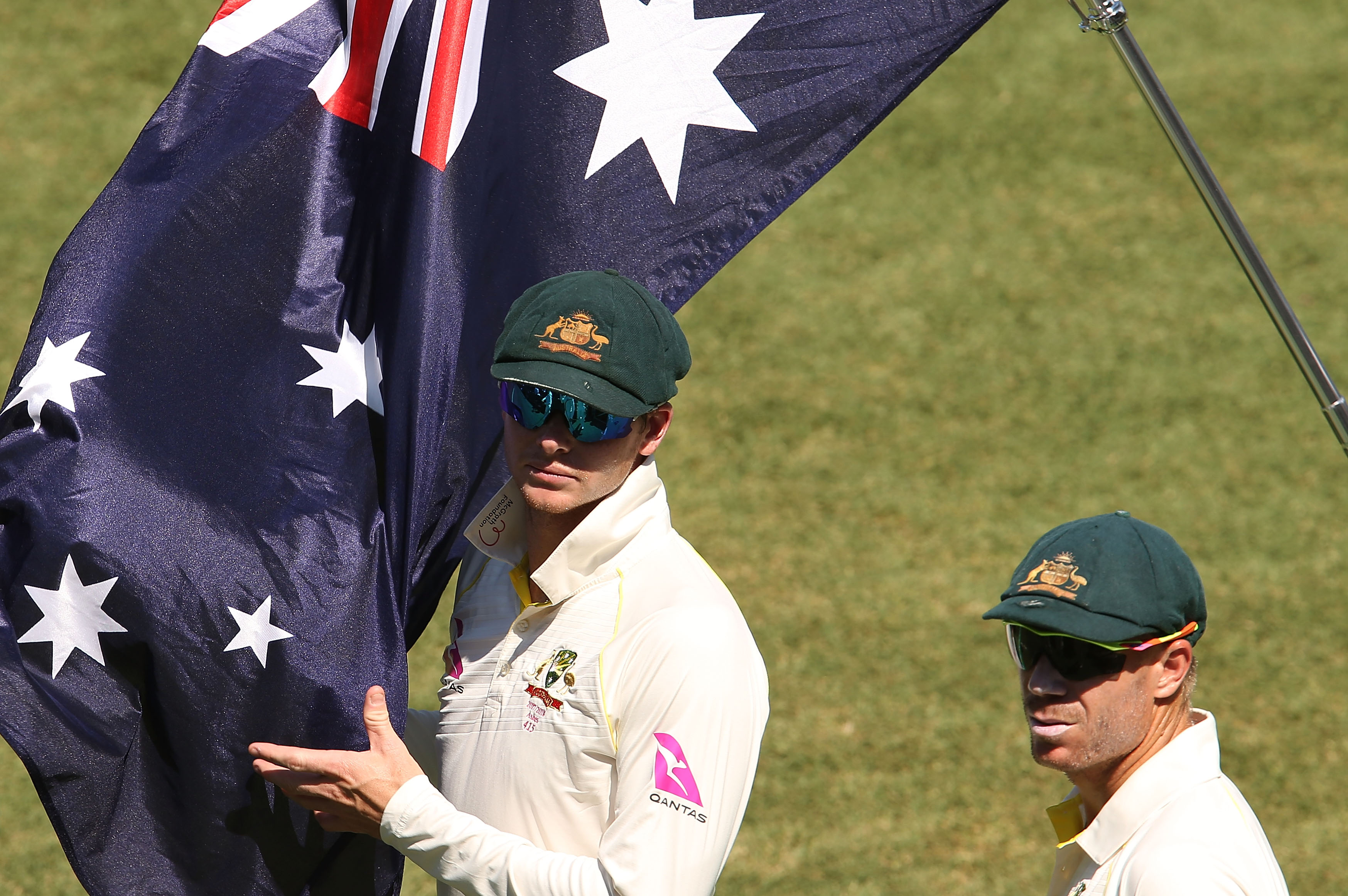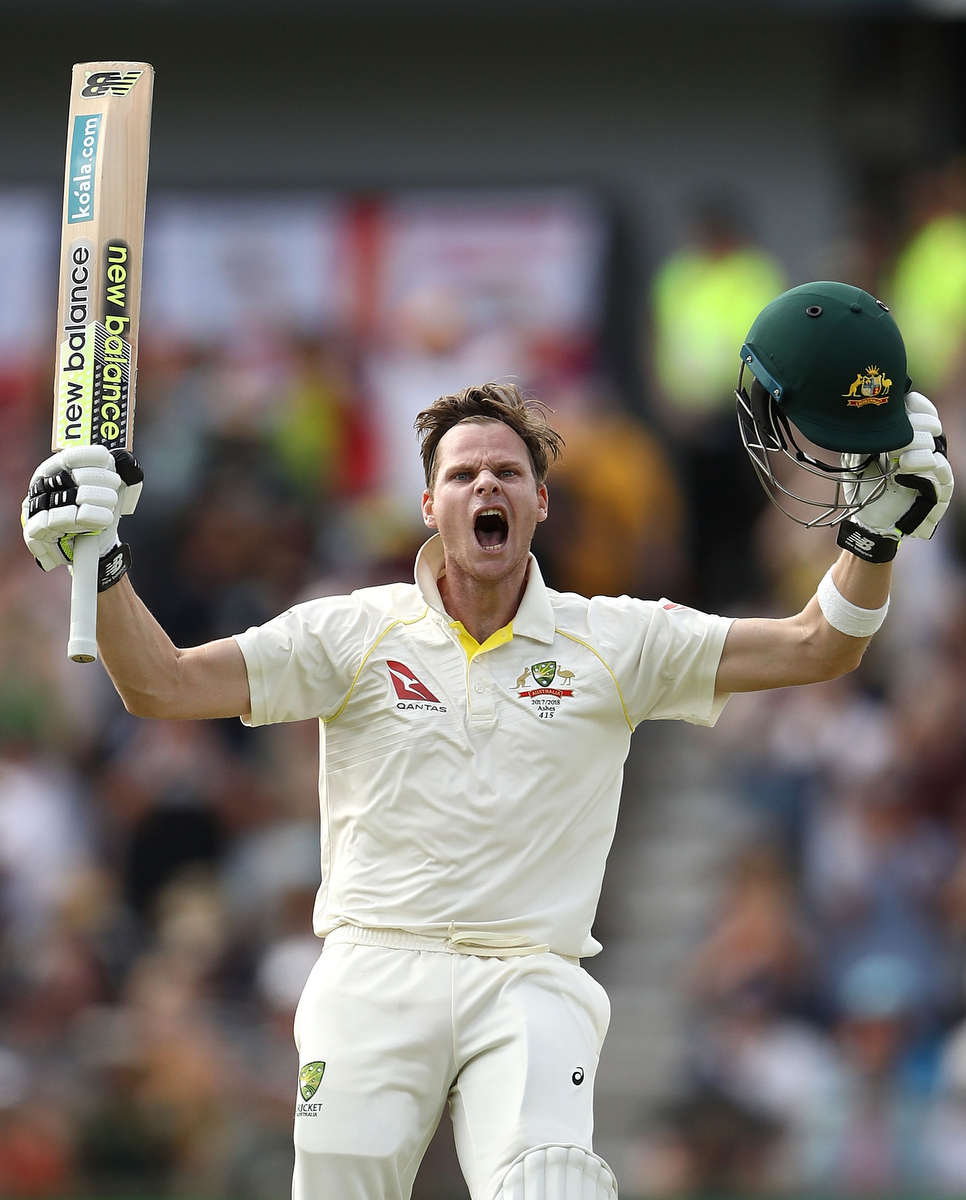CAPE TOWN may mark a turning point in the future behaviour of Australia’s Test team. But, is it too late to salvage our country’s reputation in the sport? GRAHAM BICKNELL fears the worst:
FOR an old cricket writer and lover of the game it was a solid right to the solar plexus. Cricket Australia head honcho James Sutherland said soon after the news broke that his seemingly all-powerful organisation was “shocked and disappointed” by what happened in Cape Town. So much so that he repeated it several times so that we were all quite clear.
Admittedly it was a professional performance by a man who had just been dumped head first into the gumbo. Thousands of Australian cricket tragics would have chosen more harsh and vile words, but Sutherland couldn’t go that far.
We know that Steve Smith won’t be there calling the shots in the Fourth Test and it remains unclear what role, if any, that David Warner will play.
Like tragics all over the country I watched the fourth day, couldn’t help myself although there was a nasty background feeling of voyeurism, like slowing down to eyeball a head-on smash. Unpleasant but irresistible.
There was much to observe. The Aussies looked like zombies, just walking around in a daze. The cameras seemed to avoid focusing on Smith but caught the odd shot of him at second slip. At first I couldn’t think who he reminded me of, but a trawl back through the dusty memory files soon gave me the answer. He wore the same stunned expression of Kevin Rudd alone on the backbench after Gillard nailed him. Caught in the spotlight and wishing he was dead.
Rudd though was just a politician but this was the captain of the cricket team. Our cricket team. To borrow a well used line; this was more than life and death, it was much more serious.
At the moment we don’t know the ins and outs but we can sure speculate. There are so many questions to be answered. There are undoubtedly cricket writers eager for the answers and already contemplating books. Whoever cuts to the heart of the chase first has a certain worldwide best seller. It will walk out of the shops, not just here but in all cricket countries. It will also make a ball-tearing TV mini series.
Let’s try a few guesses for now and let our imaginations run.
Captain Smith is obviously the prime suspect and would have come up with the plan during the morning of the third day while still in the field.

It may have been another agitator and perhaps it was vice captain Warner, still pumped up after the media trumpeted his “innovation” while skipper in the New Zealand limited overs series.
So let’s try to imagine that team meeting in the Aussie room. We’re told it was the seniors, which included Smith and Warner. There are various versions of who else may have been involved.
The madness germinated there. When the crazy scheme was put to them did one of them interject saying something like, “This isn’t cricket, it’s suicide.” If they did they were outvoted or perhaps simply shouted down.
And Cameron Bancroft? The poor bugger was singled out to be the bunny and his juvenile hiding of the offending tape down the front of his daks was laughable if it wasn’t so sad. He looked like a naughty schoolboy.
Will Warner take the field in the fourth Test? Who cares? The whole series means nothing now.
My feeling is we’ve seen the last of both of them in the baggy green. All they’ve achieved in their careers is so tarnished as to be unpolishable.
Those of us who have put our souls into supporting the Aussies in cricket have been left mentally destitute.
We won’t forget what has happened for the rest of our lives. It was truly a crime against sport.
We are not merely shocked and disappointed.
It’s a national feeling of being betrayed and gutted.
Cricket in Australia has been condemned to death. Our trust has been shattered.
Graham "GB" Bicknell began his journalistic career as a copy boy on Rupert's first paper, the Adelaide News.
Sent to the Melbourne bureau he wrote his first weekly sports column, "Over the Border" with Aussie rules the subject of course.
After joining The Herald, he covered football, general news and police rounds.
He spent four years in London where he reported on the first cricket World Cup, the Ashes series, two FA cups, Wimbledon and the world swimming championships.
Back in Australia in 1975 Bicknell joined the Australian, just in time for the election after the dismissal of Gough Whitlam.
He then bounced over to the Daily Telegraph where GB found himself writing three different columns as the same time -- one a daily on the goings-on in the town, two sports columns, one for the daily and one for the sister Sunday.
He later worked in magazines and freelanced before spending 11 years, up until his retirement, as Deputy Editor and a writer of fine features for the Geelong Advertiser.



Discussion about this post